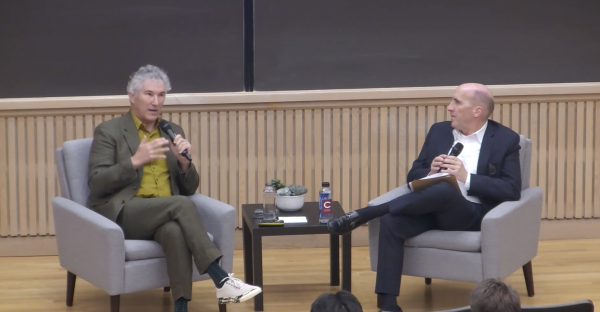NOLA, SC Trips Are Inspiration for Students
Three separate groups of Colgate students went south to volunteer over winter break, two to New Orleans and one to an impoverished neighborhood near Hilton Head.
The Center for Outreach and Volunteer Education (COVE) sent their new Disaster Impact Response Team (DIRT) to aid in demolishing flood-damaged houses in New Orleans, where volunteers were surprised by the remaining devastation, the emotional impact of their visit and the initial suspicions of some local families.
“You don’t realize how much stuff it takes to put up a house until you have to tear it down,” senior Gina Landon said.
Landon said that, despite preparations for the trip, the volunteers were still struck by the extent of the destruction.
Director of Residential Life and Assistant Dean of the College Jennifer Adams described the writing that rescue workers have left on doors of affected neighborhoods indicating the date the house was searched, the number of dead pets and the number of dead human beings they found inside.
“It’s probably one of the most jarring things when you drive around down there, seeing a number in that ‘dead bodies’ box,” Adams said. “There is nowhere in New Orleans, still, where you can’t drive and see it has been devastated.”
Volunteer Mohita Singh, one of two first-years on the trip, said that the utilitarian effects of their trip were not as important as the encouragement they were able to bring New Orleans residents.
“They didn’t even want the help so much as the recognition,” she said, “We could show the people that we know what happened to them and we know it was wrong.”
At first, local families in the second neighborhood where the volunteers worked were wary of them.
“To be blunt about it,” Singh said, “It was 21 white students and teachers in a predominantly black community and they didn’t know what we were there for. They thought we were there to take stuff away rather than help out.”
As the work progressed, however, volunteers were able to learn a great deal from conversation with the homeowners.
The COVE also coordinated a Habitat for Humanity trip to a poor area near Hilton Head called Bluffton, a trip that led trip leaders senior Phil Cole and Assistant Director of the COVE Betsy Busche Cross to rethink Colgate’s affiliation with the national organization.
During the day, student and staff volunteers worked with the Hilton Head affiliate of Habitat to help complete several houses in a new development. Every night, Cole and Cross held group discussions.
These discussions were meant to improve the group dynamic as well as promote the COVE’s mission to address the issues that create the problems with which volunteers attempt to help.
It is this mission that spurred COVE members to begin looking for more comprehensive service trips in the future. Cole describes it as the difference between high school and college-level volunteerism.
“As always, it was a success because of the people,” Cole said. “The quality of the student volunteers that we get is more than we expect. As an organization, the COVE has a responsibility to give them a trip that meets their needs.”
Cross said that local Habitat for Humanity workers in Hilton Head did not entrust Colgate’s volunteers with the responsibility that they deserved, putting them on relatively menial tasks. She said that all volunteers, especially the women, experienced “unbelievable verbal head-patting.”
“We are hoping to build more of a partnership with who we’re working with,” Cross said, “not just being told what the issues are, but identifying and meeting a need.”
Nonetheless, students said that the trip was a positive experience.
“They treated us with a lot of respect,” junior John Sweeney said. “Building sheds doesn’t get someone out of the streets, but it has to get done.”
Finally, the Colgate Jewish Union (CJU) sent a group of nine students from Colgate, one from Hamilton and one from Syracuse, along with Associate University Chaplain and Director of Jewish Life Rabbi David Levy to New Orleans. There, they spent a week at a camp called “Operation Blessing.”
Operation Blessing works in conjunction with the National Relief Network to send teams of approximately ten volunteers to the homes of New Orleans families who have signed up for their services.
As with DIRT’s experience, the majority of the houses that the CJU worked on had not been touched since their former residents were forced to abandon them in the wake of Hurricane Katrina. The volunteers who went along with the CJU engaged mostly in gutting houses so that the families could move on to the next phases: insurance assessment and reconstruction.




